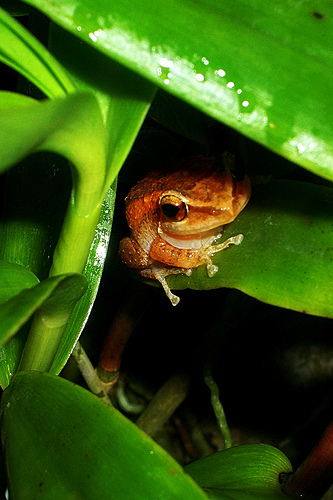The following is a list of confirmed workshops to be offered during the first day of the THATCamp Caribbean meeting, Monday, Nov. 12, 2012. All workshops will take place in the UPRM Chardón building. See below for times and room numbers.
Building Online Archives with Omeka
Instructor: Amanda French
Time: 1:30 pm
Room: 319
Difficulty level: Beginner
Prerequisites: None
Omeka is a simple system used by scholarly archives, libraries, and museums all over the world to manage and describe digital images, audio files, videos, and texts; to put such digital objects online in a searchable databases; and to create attractive, customizable web exhibits from them. In this introduction to Omeka, you’ll create your own digital archive of images, audio, video, and texts that meets scholarly metadata standards and creates a search engine-optimized website. We’ll go over the difference between the hosted version of Omeka and the open source server-side version of Omeka, and we’ll learn about the Dublin Core metadata standard for describing digital objects.
The Digital Library of the Caribbean (dLOC)
Instructors/Facilitators: Laurie N. Taylor and Brooke Wooldridge
Time: 3:00pm
Room: 319
Difficulty level: Beginner
Prerequisites: None
This workshop will introduce you to Digital Library of the Caribbean (dLOC). dLOC is a cooperative digital library for resources from and about the Caribbean and circum-Caribbean, providing access to digitized versions and curated digital versions of Caribbean cultural, historical and research materials currently held in archives, libraries, and private collections. We will cover a range of topics, including: partnership model; permissions-based infrastructure; dLOC as a scholarly platform; resources already included; basic functionality; and user tools.
Introduction to team building and development
Instructor: Lynne Siemens
Time: 1:30pm
Room: 325
Difficulty level: Beginner
Prerequisites: None
As research projects become larger and more complex, it becomes apparent that research teams are necessary in order to answer these complex, yet very interesting research questions effectively. To do this, academics must extend their traditional academic training with new skills related to effective team work. This workshop will introduce the basics related to the creation and development of effective research teams. Topics will include the determination and recruitment of required skills, knowledge and team members, methods to ensure team effectiveness, potential team building exercises, and ways to overcome challenges related to multi-discipline and multi-institutional teams.
Formation of a DH Lab/Centre
Instructor: Lynne Siemens
Time: 3:00pm
Room: 325
Difficulty level: Intermediate
Prerequisites: Introduction to team building and development
Digital Humanities is growing in scale from a series projects undertaken by a couple of individuals to institutionally-based organizations, with larger budgets and mandates, beyond other factors. How can a group of interested researchers and staff work together to create such a centre? This workshop with address this question by exploring issues related to scaling operations from the individual to a centre, determining the appropriate organizational model, developing the plan which situates the DH centre in the academic institution’s mandate, communicating to administration to gain support and resources, structuring memorandums of understanding between partners, and other issues.
The Textual Communities Project
Instructor: Barbara Bordalejo
Time: 1:30pm
Room: 326
Difficulty Level: Beginner
Prerequisites: None
The Textual Communities Project at the University of Saskatchewan allows scholars and the wider community to create common interest groups to cooperate in the transcription, collation and editing of texts. Our test case will focus on medieval manuscripts, particularly Dante’s Divine Comedy and Chaucer’s Canterbury Tales, as well printed versions of 19th century texts. The workshop will be geared towards scholars/librarians starting out in online textual editing and community building.
Electronic Editions 101
Instructor: Barbara Bordalejo
Time: 3:00pm
Room: 326
Difficulty Level: Beginner
Prerequisites: None
This workshop will explore the possibilities offered by electronic editions and the tools required to produce them. During the workshop we will survey software specifically designed for textual editing as well as applications originally developed for other disciplines. We will examine systems for transcription, collation, analysis and different types of presentation for electronic editing.



 foto de
foto de 